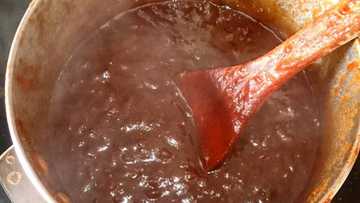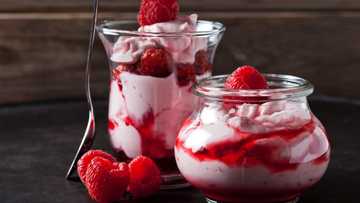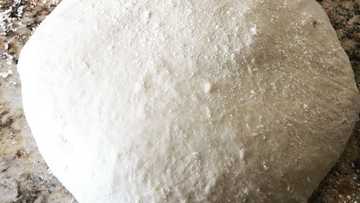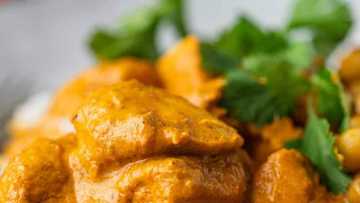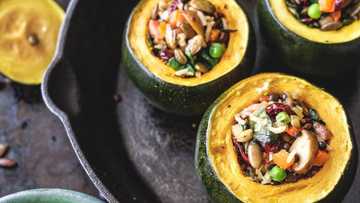Does vanilla extract go bad? Shelf life, storage tips, and spoilage signs
Vanilla extract is a staple ingredient in many kitchens, popularly used in baking and cooking. It is a central ingredient in vanilla cake, cupcakes, ice cream, and buttercream. You can use it in savoury dishes like marinades, puddings, and grilled meat, and drinks like hot chocolate and coffee. Although it adds flavour and aroma to sweet treats, does vanilla extract go bad or lose its potency over time?
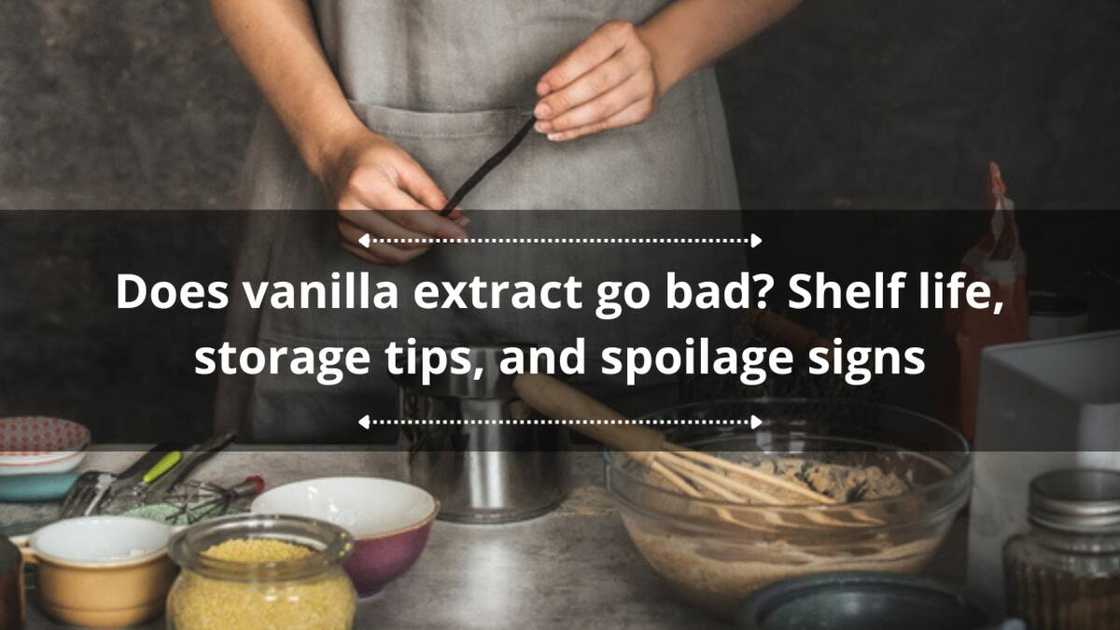
Source: UGC
TABLE OF CONTENTS
- Does Vanilla extract go bad?
- Does pure vanilla extract go bad?
- Why does vanilla extract taste bad?
- How to tell if vanilla extract has gone bad
- How to tell if vanilla extract is good
- Is expired vanilla extract safe?
- Can one use expired imitation vanilla extract?
- Does vanilla extract need to be refrigerated?
- How long to age vanilla extract?
- How to store vanilla long-term
Vanilla extract is formed by soaking vanilla pods in alcohol and water. There is pure vanilla extract, imitation vanilla extract, and homemade vanilla extract. Keeping it fresh and valuable is vital to giving your dish the right taste. Hence, as a baker or cook, it is essential to understand its shelf life, storage tips, and signs of spoilage.
Does Vanilla extract go bad?
It goes bad if not stored adequately after many years. So, does vanilla extract expire? Its quality and flavour can degrade, but it does not expire. Both pure extract and imitation extract last up to a year after their expiration date.
Does pure vanilla extract go bad?
The pure extract has an indefinite or long shelf life, but its flavour and aroma may deteriorate. It is made with alcohol, and as the alcohol evaporates, the extract loses its original taste and essence.
If you store it in a cool or dark place, you can maintain its quality for up to 10 years. Also, check for signs of spoilage, and use it within five years for optimal flavour and aroma in your recipes.
Why does vanilla extract taste bad?
It does not taste good because it is concentrated. More so, the extract can taste sour or unpleasantly different for several reasons, including the following:
- Overuse or excessive addition to recipes;
- Using old or expired extract that has lost its flavour and aroma;
- Poor quality or imitation vanilla extract;
- Contamination or exposure of extract to light, heat, or oxygen;
- The presence of off-notes or bitterness from the beans or processing;
- The presence of chemical or artificial additives in some extracts.
How long does vanilla extract last?
Vanilla extract shelf life varies with its type. You can use the extract within two to four years of opening. When stored properly, it will be indefinite.
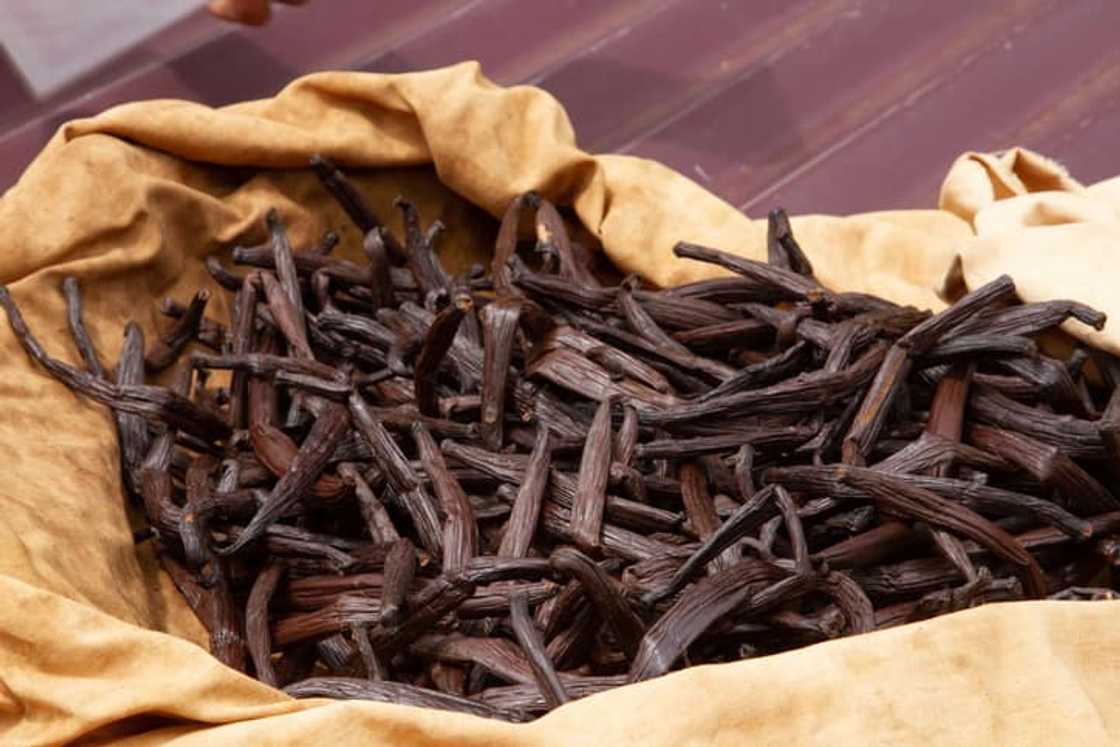
Source: Getty Images
The pure extract (made from real vanilla beans) can last five to ten years, while imitation vanilla extract (made from lab-produced vanillin) can last two to four years. Also, the homemade extract lasts two to three years.
How to tell if vanilla extract has gone bad
The surest way is through a sniff test. If it has an off smell or a sour smell different from its original sweet aroma, discard it. You can also tell if you check and see the following:
- Discolouration: Darkening or cloudiness in the liquid;
- Mould or mildew: A visible growth, clumps, or thick particles in the bottle;
- Sludge or sediment: Particles or residue at the bottom of the bottle;
- Insect infestation: Tiny insects or eggs in the liquid;
- Flavour change: A bitter or unpleasant taste;
- Texture change: Thickening or crystallization of the liquid.
How to tell if vanilla extract is good
Before adding the ingredient to your recipe, verify the quality of your vanilla extract. Look for a rich aroma, dark brown colour, clear liquid, smooth flavour, and no off-notes or sediment. Also, a strong flavour with a hint of alcohol indicates a good extract. Avoid additives, unusual odours, or mould and go for extracts with 35% alcohol and minimal ingredients.
Is expired vanilla extract safe?
Expired extract is generally safe to use. So, what happens when one uses expired vanilla extract? It can produce less flavourful, aromatic baked goods with potential off-notes and texture changes.
While it is still safe to use, it may affect the quality of recipes. You can continue using it after expiration but adjust the amount to compensate for the reduced flavour intensity.
Can one use expired imitation vanilla extract?
You can use expired imitation vanilla extract, although its flavour and aroma may have faded. Before use, look for signs of spoilage, such as off smells, discolouration, or mould; discard and open a fresh bottle if you see any issues.
It is still safe if it appears and smells fine, but the flavour may be less intense. It typically remains good for up to a year after expiration.
Does vanilla extract need to be refrigerated?
Refrigeration is not necessary, but it can help extend its shelf life. You can store at room temperature (60-80°F) in a dark place, like a kitchen cupboard.
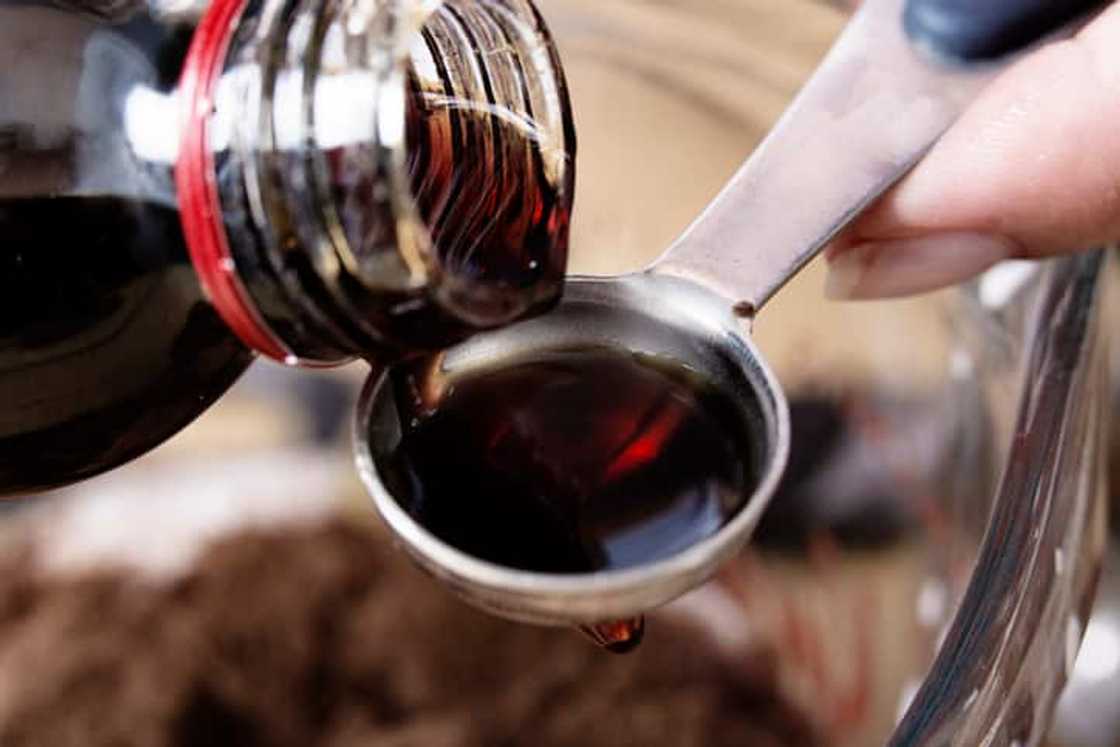
Source: Getty Images
How long to age vanilla extract?
It can be aged for an extended period, typically six months to 5+ years, allowing flavours to mature and blend. You should regularly taste and smell to determine the optimal ageing time, as it is a matter of personal taste. Aged vanilla extract with beans lasts several years, while extract without beans is indefinitely shelf-stable.
How to store vanilla long-term
To store vanilla extract for a long time to help preserve the quality and flavour, follow these steps:
- Store in a cool and dark place. Put it away from direct sunlight and heat sources in a pantry or cupboard.
- Use a tightly sealed bottle. Keep the lid or cap tightly closed to prevent oxidation and contamination.
- Store in non-reactive glass bottles that will not affect the flavour.
- Do not store it near ovens, stovetops, or radiators.
- Store in an area with a consistent temperature between 60°F and 80°F (15°C and 22°C).
- Keep the extract away from strong-smelling foods. Vanilla can absorb odours, so store it away from pungent foods like onions and garlic.
Does vanilla extract go bad? It is important to store your extract correctly and use it judiciously. Follow the steps mentioned above to enjoy your dishes.
READ ALSO: Moist vanilla cupcake recipe: Step-by-step guidelines and tips
As published on Briefly, vanilla cupcakes are a classic treat that appeals to a broad range of tastes. The sweet delicacy is a crowd-pleaser that people of all ages can enjoy; hence, it is appropriate to be served as a dessert at various social gatherings.
The popularity of vanilla cupcakes is mainly attributed to their versatility. Their neutral flavour allows them to pair well with different frostings, decorations, fillings, and beverages, ensuring endless creativity.
Source: Briefly News

